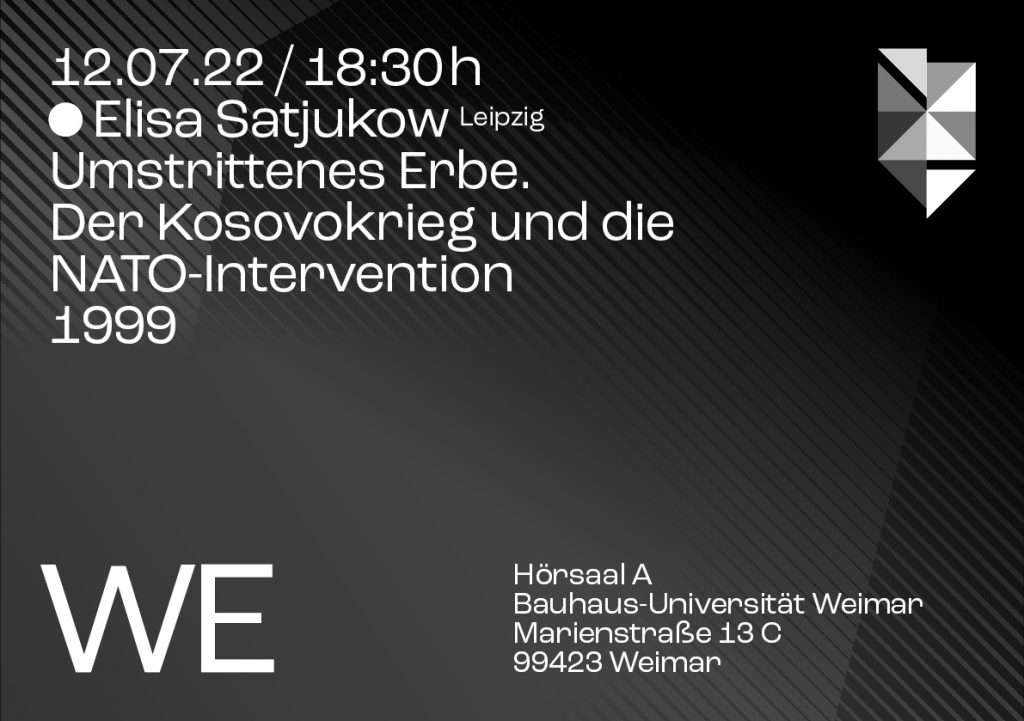Elisa Satjukow (Leipzig): Contested Heritage. The war in Kosovo and the NATO intervention in 1999
It’s war in Europe again, and while we watch the events in Ukraine, another European war is largely forgotten. Thirty years ago, the breakup of the former Yugoslavia began.
Bloody conflicts in Bosnia, Croatia and Kosovo not only claimed countless lives, they also drove hundreds of thousands of people to flee. In the face of the Srebrenica massacre and the scale of violence against civilians, NATO decided to intervene in the Bosnian war in 1995. Just four years later a new military intervention by NATO should bring an end to the violence in the Kosovo war. To this day, the transatlantic allies 78-day military campaign, which violated international law, is considered controversial. While the bombing often appears in European discussions about EU and NATO accession of the Western Balkan states only as a historical footnote of the Kosovo conflict, the situation in Kosovo and Serbia is quite different. Here, the commemoration of the events of 1998/1999 – albeit focusing on quite different aspects in each case – occupies a central place in national cultures of remembrance. The Albanian population of Kosovo remembers the military intervention primarily as support for the struggle for national independence. In Serbia, on the other hand, the event stands for an illegal attack on a sovereign state; the Kosovo war and the NATO intervention are largely treated as disparate events. In her lecture, Elisa Satjukow uses the example of the NATO bombing of Serbia and Kosovo in 1999 to illuminate the ambivalences of military interventions from the perspective of the people affected by the war. Using the example of the culture of remembrance – especially in the form of memorial days and monuments – she sheds light on the controversial legacy of this almost forgotten war in Europe.
Dr. Elisa Satjukow is a research assistant at the Department of East and Southeast European History. Previously, she was a fellow in the PhD program “Trajectories of Change” of the ZEIT-Stiftung and in 2019 she published her PhD thesis “The Other Side of Intervention. A Serbian Experiential History of the 1999 NATO Bombing” (transcript 2020). She studied Eastern and Southeastern European history, general and comparative literature, and Russian studies in Leipzig, Belgrade, and Volograd. In addition to her academic work, she was project manager at the Kompetenzzentrum Mittel- und Osteuropa in Leipzig and coordinator of the International MitOst Festival. Her focus is on the intertwined history of Eastern and Southeastern Europe from the 19th to the 21st century, especially everyday life, gender, transformation and knowledge history, memory cultures, postcolonial studies as well as theories and methods of historical studies.
Universitätsbibliothek der TU und UDK Berlin
Fasanenstraße 88
Raum Bib 014
